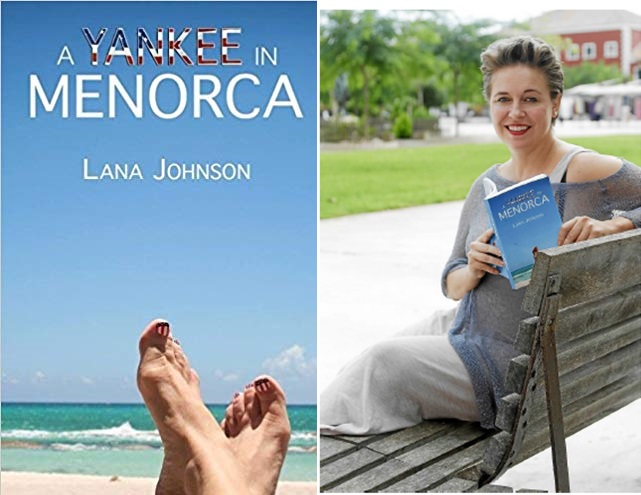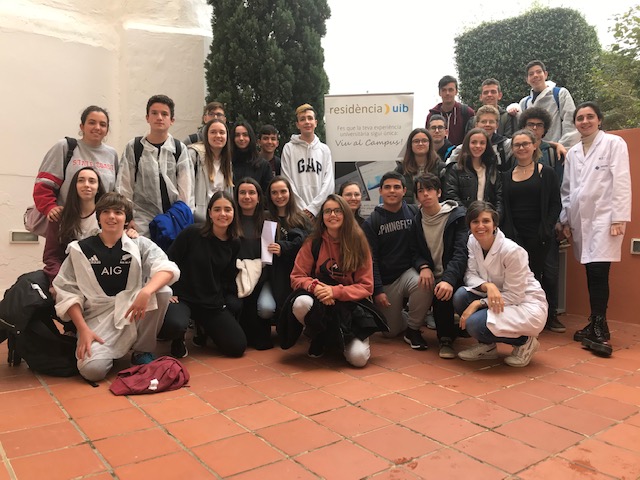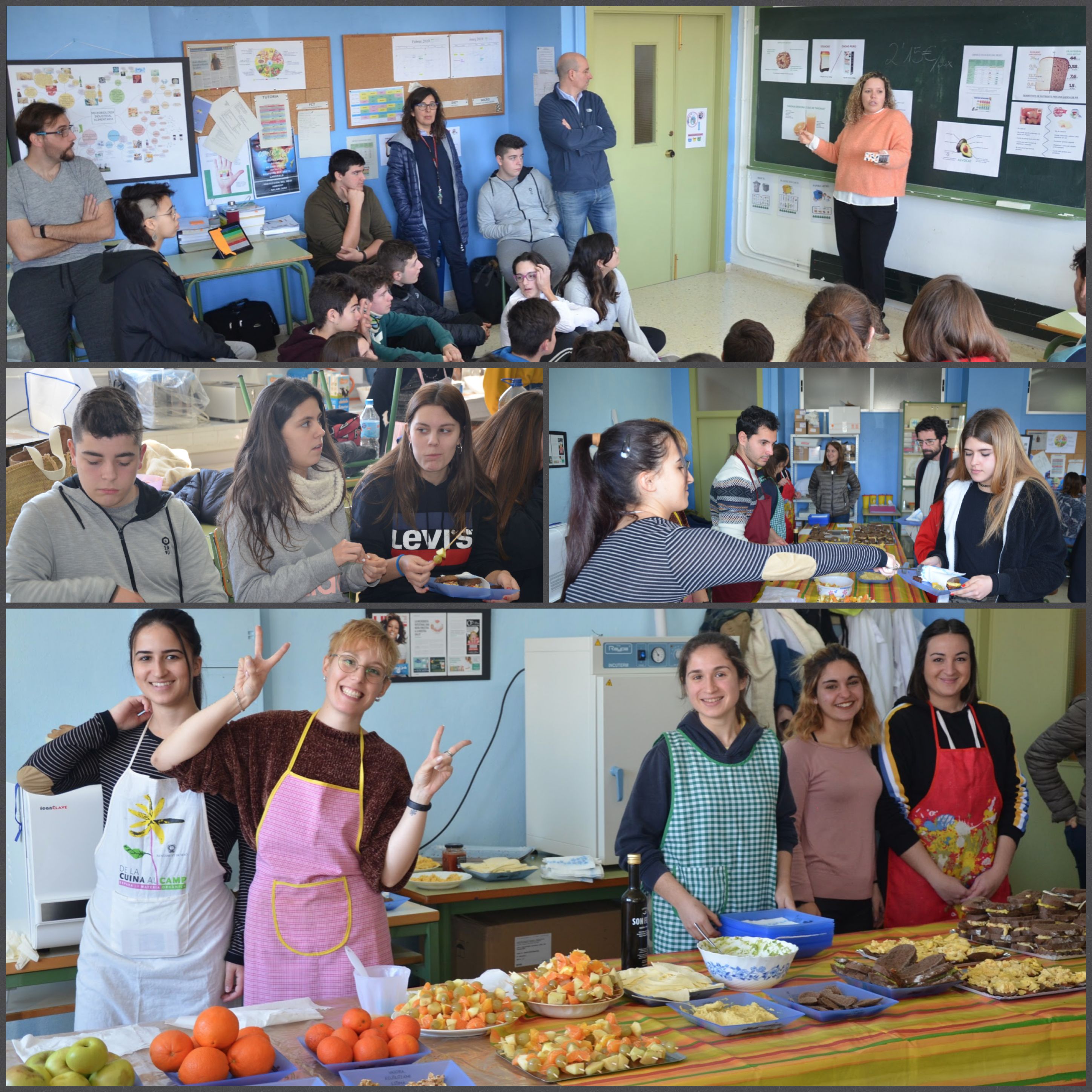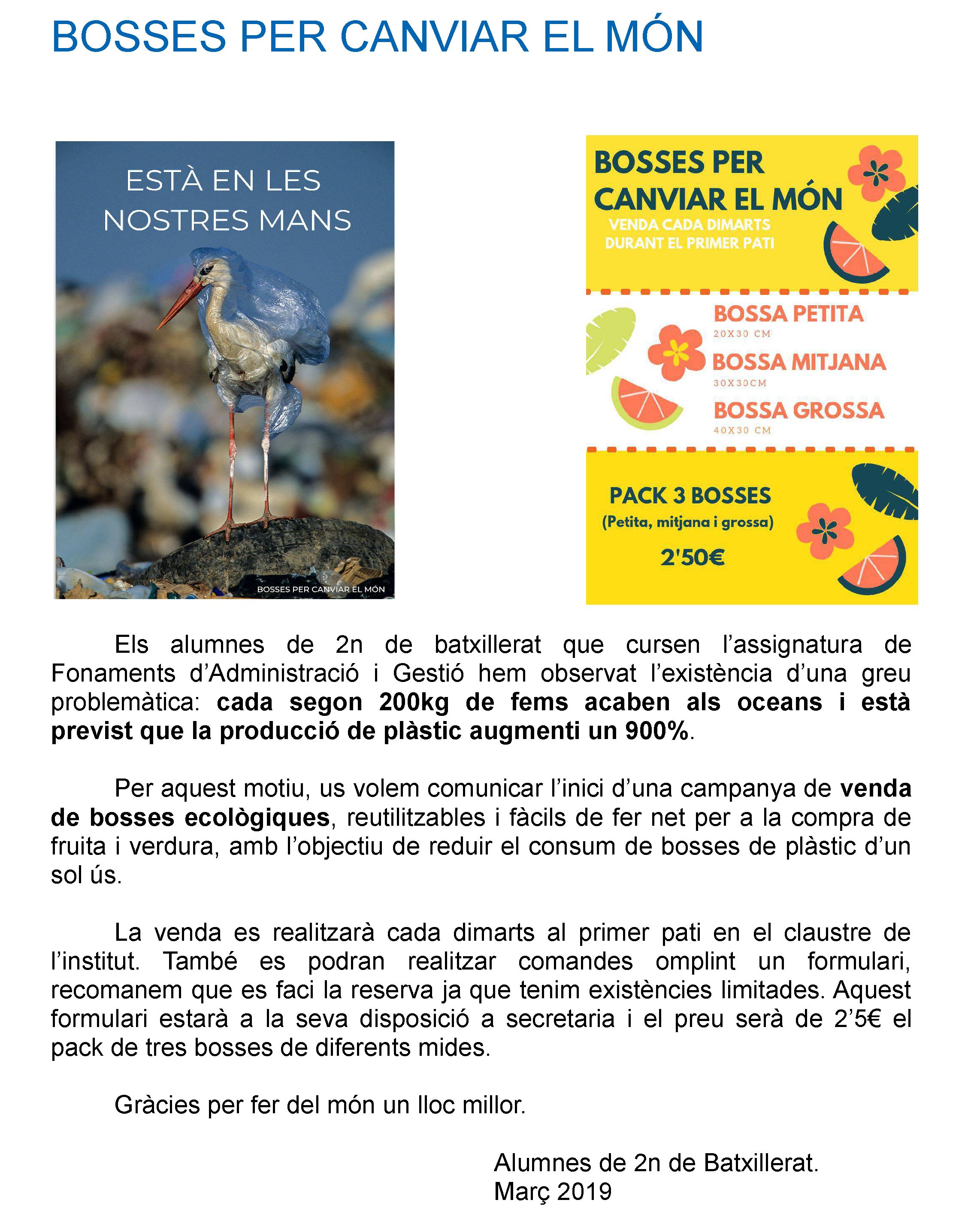Escrit per Equip Directiu.
“When You Think It’s Over… It Starts Again!” or “Houseguests” are two chapters from the book A Yankee in Menorca that our first-year Baccalaureate students had to read for their English lessons. In order to get to know the writer of the book a little bit better, they interviewed Lana Johnson, a strong woman who loves adventures and decided to leave California to move to Menorca. In her book, she explains some of her most hilarious first experiences on the island. You can’t miss it! This is what our students learnt…
Why did you decide to write the book A Yankee in Menorca? What inspired you in Menorca at the time of writing the book?
At that time I was working with an Argentinian girl and every day we were talking about my experiences in Menorca. I was always telling her about my funny stories and she suggested that I write a book in order not to forget any of my experiences. At the same time, I used to tell her how nice Menorcan people were, so my friend also realized how lovely they were. Menorcan people accept people from different countries very well.
At least that was my experience. So, because I was having such a good experience, she encouraged me to write a book to let other people know as well as to remember my good memories and I started to write it as a hobby.
Why did you decide to come to Menorca?
I didn’t come to Menorca on purpose. At that time, I was studying Spanish in Córdoba, a province of Andalucía. However, when I finished my Spanish course, one of the most dangerous supernatural disasters in the world happened: an oil tanker ship crashed in Galicia, and all the nearest beaches were covered in oil.
I left Córdoba and went to Galicia as a volunteer to clean up the beaches. There I met a group of people from Menorca who were volunteers too, and they offered me a summer job to work as a receptionist in a museum because I spoke English. I accepted the offer, but I didn’t know where Menorca was. I went back home and searched for it, and I realized that it was an island in the middle of the Mediterranean Sea. So I worked all summer as a receptionist in a museum called “Ecomuseo de Cap de Cavalleria”. After this, I decided to stay on the island. Finally, even though I came here accidentally, I don’t regret it because it’s a wonderful and beautiful island.
Do you think it's easy to get used to customs, manners, habits and cultural features of Menorca? Are you used to them, after living what you explain in your book and considering the big differences between Spain and the USA?
That’s a good question. For me, it was easy to get used to customs, manners and habits of Menorca, because I first arrived in Es Migjorn Gran, a small town, and I’m from a small town of California too.
Moreover, the climate is very similar in northern California, we have the same climate as in Menorca.
However, it was difficult at first because I couldn’t find my favourite toothpaste, my favourite deodorant, my favourite shampoo... and it was frustrating. But only little things were frustrating, because the people in Es Migjorn were very nice, open and friendly and they were very helpful to me. In addition, people from California drive on the same side of the road as in Menorca, so driving was very easy too. People from small towns are very similar across the world: open and nice; although I can understand why it could be difficult for other people from large cities, for example, London, to get used to living here.
What is the main difference between American and Spanish people then?
One of the main differences between American and Spanish people is the way you meet somebody. In the United States the first question is “What’s your name?” , and the second one, “ What do you do?” . I mean that they judge you by your job. Instead, in Spain, the first question is the same one, but instead of asking about your job, they ask you how are you, what is important for you, about your hobbies, your pleasures... Thus, they worry about your feelings; in general, about you, so you don’t feel judged.
If you had to choose, would you prefer life as it is in Menorca or as it is in the United States?
I prefer life in Menorca, I think the quality of life is much higher here. There’re many things I think are better here, for example, free health care; the fact that you can go to the doctor whenever you want is a luxury that we don’t have in the United States; there, if your job doesn’t provide a health insurance, it is very expensive and every single day many people worry about “if I get sick, I can’t afford to pay for it”. People die, people have to choose between paying for the rent or paying for their prescription, and that’s horrible, people worry so much about this in the United States. But here nobody has to worry about that, you know you’ll be taken care of. Also, I like the lifestyle here, I think is slower paced and people appreciate life more. They appreciate eating with family and family time, just because of how it is structured; in the United States everyone eats at school and you only see your family in the evening. So, I prefer Menorca because I think the quality of life here is much higher and people, in general, are happier here, not everybody, but I think the lifestyle helps you to have a more fulfilling life.
Is what you have seen in Menorca what you expected to find?
At first, I didn’t know anything about Menorca. But when I started to search on the Internet, I saw that Menorca had beautiful beaches and an incredible fauna and nature. When I arrived on the island, it was much more than what I had imagined. I really like the typical food and traditions of Menorca. But I didn’t know that other languages were spoken in Spain, so I thought that if I came to Spain and I spoke Spanish, it would be fine. In short, it was better than what I had expected; I really liked the island despite the problems with the language.
Did you ended up loving Menorca and “Menoquins” in spite of your experiences here?
Yes, I love Menorca and “Menorquins”. Not i n spite of my experiences, but because of them. In my book I like to exaggerate very much. I like to exaggerate and make things bigger than they are, so I make situations much more dramatic than they really are. But I love Menorca and “Menorquins” because of the experiences that I had here. Even though on many occasions they can be embarrassing for me, I always find them extremely funny. I enjoy laughing at myself; I have no problem laughing at myself. So it’s not i n spite of, it’s because of . In short, I love Menorca and I love “Menorquins” because of the experiences I had here.
As a Yankee, how would you define life in Menorca in a few words?
Wonderful, beautiful, less stressful, less complicated. Here people focus on things that are more important, things that matter, other things that shouldn’t matter aren’t given too much attention. So life here is wonderful, pleasant, beautiful and less stressful.
Have you ever felt homesick since the first time you moved out to Spain?
To be honest, I don't feel homesick, I'm very happy in Menorca. There are few things that I miss. I grew up in a big ranch and there were many wild animals and I sometimes miss that huge nature which is in the United States, but not so often. I really prefer living in Menorca. Apart from that, I often get to see my family too. My brother loves Menorca and, for that reason, he tends to come to Menorca and make me feel even less homesick. I also see my mum a lot! The first time she came to visit Menorca, she was single with three children and she fell in love with Roy, a Londoner! Now they live half part time in Menorca and the other half in England. When I go on a trip and I have to stay away from Menorca is when I really feel homesick.
Now, let’s talk about the chapters we read for our English lessons… How do you feel when you see that at a meal with Minorcan people, they all expect your reaction to the dishes they are offering or when they treat you differently because you don't have the same culture?
First, I love to eat, so, any excuse to eat is a good excuse for me. Second, I was raised in a small town so they always told me that food and eating with people is very important, also, that food is an important part of tradition. Even in the USA if you go to someone’s house, they want to know if you like the food they made especially for you, and I understand them, I even like that. I like that people care about the food they make, I think that feeling is very important because they want this experience about their food to be positive for me.
And I appreciate all the love that goes into making food, and that people want to see my reaction. Even though sometimes it is a little bit stressful, because there’s a lot of food, I think it is great that people express themselves through food, because there are people who aren’t very sociable and making food is the way that they use to express their feelings. So, I feel very honored and privileged.
In one of the chapters you talk about feeling stressed at a Menorcan meal because you had a big load of food to eat! Why didn’t you stop eating if you were not hungry?
Sometimes, there are things that you don’t want to do but you have to. In a lot of situations, you must eat some plates because you don’t want to hurt people’s feelings and sometimes you have to lie because it is the best way to make a good impression. You have to think about small towns... The typical food is so important there and if they offer it to you, it would be disrespectful, if you didn't eat it. Apart from that, I love eating and the truth is that I liked that food a lot and I exaggerated a little bit. I was full, but it wasn't so horrible!
Do you still think that Spaniards have an extra chromosome that helps them not to get fat or drunk as you mention in your book?
I don't think they have an extra chromosome. I think that there are differences between cultures around food and for me Spaniards are better. In my opinion, here you are costumed. Since you are children, you know how to pace yourselves when you go to a large meal. People here have long and extended meals and they don't get drunk or fat because they are more used to that. In the United States we don't do that, our meals are not as long, one hour meal and that’s all. So we are not prepared for that. I think that society and cultural norms prepare Spanish people for this longer meals, you know how to deal with the situation. They know that there is going to be three or four plates and more drinks after the coffee. But I always overeat when I go out, because I want to try everything, that's the difference! So, no, I don't think Spaniards have an extra chromosome. :)
(written by our first-year Baccalaureate students)
 Professional i Formació del Professorat de 4 de febrer de 2019 per la qual es convoquen les proves lliures per obtenir els títols de tècnic i de tècnic superior de formació professional del sistema educatiu i se'n concreten aspectes sobre l'organització (BOIB núm. 18 de 9/02/2019), publiquem la llista provisional de persones inscrites.
Professional i Formació del Professorat de 4 de febrer de 2019 per la qual es convoquen les proves lliures per obtenir els títols de tècnic i de tècnic superior de formació professional del sistema educatiu i se'n concreten aspectes sobre l'organització (BOIB núm. 18 de 9/02/2019), publiquem la llista provisional de persones inscrites.


